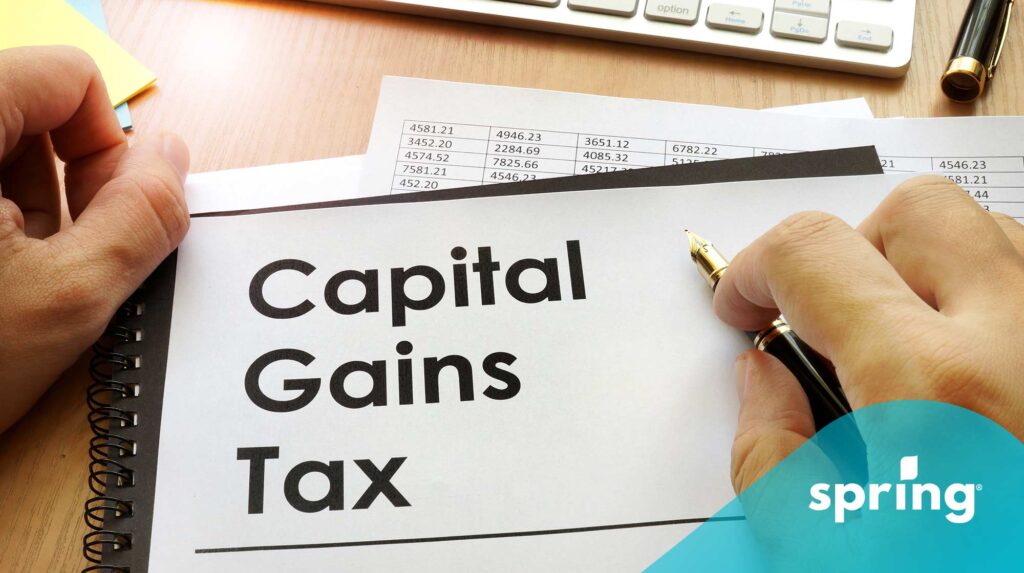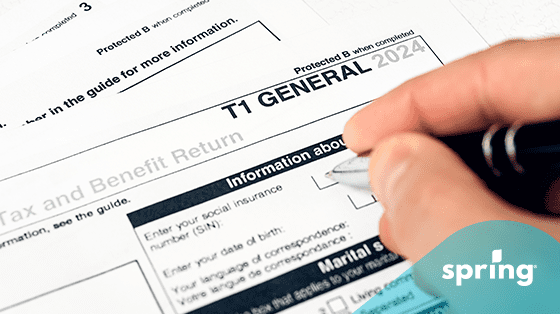Where Credit Scores Are Reported
One of the most frustrating things about credit scores in Canada is that there isn’t a standard scoring system for each person. Equifax and TransUnion are the two main credit bureaus in Canada, and each has its proprietary method of scoring credit files which are then used by lenders in different credit scoring models.
Further, the bureaus don’t work with the exact same information. Some lenders report payment data only to one of the Canadian credit bureaus, and most lenders will do credit inquiries with only one bureau.
For example, suppose you applied for financing at one of the major banks. In that case, they may only check your TransUnion file so that the inquiry will be listed on your TransUnion file and not your Equifax file and, as you’ll see below, credit inquiries are one of the factors that impact your credit.
To make things even more complex, each of the bureaus may have a number of different types of scores that they supply to banks and lenders. So, your TransUnion score from one lender could be different from your TransUnion score at another lender. The end result is that one person could have a handful of different scores from both credit bureaus.
How Credit Scores Work
In Canada, credit scores range from 300 – 900, with each credit reporting agency, with 300 being the lowest and 900 being the highest. Companies use this credit score to determine your eligibility for credit products and the interest rate given with these products. You can estimate your approval based on which category your credit score falls in.
| Category | Credit Range |
| Poor Credit | 300-579 |
| Fair Credit | 580-669 |
| Good Credit | 670-739 |
| Very Good Credit | 740-799 |
| Excellent Credit | 800-900 |
Now that we’ve gone over the different credit scores and categories, you may be wondering where you fall with each of these scores. While many of these credit scores are good, let’s take a look at how banks consider these.
Is 600 A Score?
In Canada, a credit score of 600 falls on the Fair scale. While this doesn’t necessarily mean you won’t get approved for things, it can mean that you get a higher interest rate. 600 isn’t generally a low score, but it is lower than in the good score range. This could increase your borrowing costs and make it more difficult for you to get approved for things like rentals and cell phone bills.
Is 650 A Good Score?
In Canada, 650 also falls on the Fair scale when it comes to credit scores. However, you can still qualify for loans with this score. It’s important to remember that you aren’t likely to get the best interest rate, though.
Is 700 A Good Score?
For most financial institutions in Canada, 700 is considered to be a prime credit score. This means that you’re more likely to get a better interest rate. Also, you’re more likely to get approved for a mortgage, especially as a first-time home buyer. This is because the CMHC required a 680 credit score to get an insured mortgage. While this has changed to 600, many lenders do still prefer a minimum score of 680.
Is 750 A Good Score?
On a credit score scale, a 750 falls under really great. This gives you access to much more, including financing, rentals, and so much more. With a 750 score, you show potential lenders that you’re responsible for your money and can manage different forms of debt.
Is 800 A Good Score?
A score of 800 is considered to be an excellent credit score and gives you access to the best credit scores and more types of financing. Not only do you have access to mortgages and loans, but you also have access to many other things that require a good credit score. You’re also likely to have access to the best interest rates. Generally, the higher your score, the lower your rates.

How Credit Scores Are Calculated
TransUnion and Equifax follow roughly the same formula when they calculate credit scores. The number you receive is based on a blend of your financial information, including things like how often you pay your bills on time.
Canada’s credit bureaus use five main factors to determine your credit score.
Payment History
How often you pay your bills on time is the single most crucial factor that goes into your credit score calculation. It’s also the one you theoretically have the most control over. A history of late payments will damage your credit score, and making your payments on time will help you build credit. A good payment history accounts for a good portion of your credit rating.
Credit Utilization
Your existing debts are also a hugely important factor in your credit score. In particular, your credit utilization ratio (how much revolving credit (credit cards, lines of credit, etc.) you’ve used vs. how much you have available) is a factor. A high ratio will damage your credit score, and a low credit utilization will increase your score and keep you out of financial difficulty.
Credit History
The length of time you’ve been using credit is another factor. If you have no credit history or a very short one, this will lower your credit score, as lenders have less information to measure your creditworthiness. Having a solid credit history can lead to a good credit score and allow you to borrow money.
Inquiries
Any time a hard check is run on your credit score, this shows up on your credit report. This is especially true if you have a high number of hard inquiries in a short period. You’ll learn more about inquiries below.
Public Records
A history of bad credit or financial hardship will also negatively impact your credit score. For instance, if you previously filed for bankruptcy or had several debts, go to collections. The good news is this typically only accounts for around 10% of your credit score calculation.
What’s The Average Credit Score In Canada
While lower credit scores can be standard, you might be surprised to learn that the average credit score in Canada is actually in the Really Good range. It actually sits at 760. This means that the average Canadian can qualify for credit products and get a lower interest rate. However, for those who don’t, there are plenty of ways to increase your credit score and get it in the 700 and above range.
How To Get A Good Credit Score
There are steps you can take immediately to begin repairing your credit and improve your credit score. It might not happen overnight, but if you follow some of these tips, your credit score will improve.
Paying Your Bills On Time
If you want to improve your credit, the single most important thing you must do is ensure you pay every single bill you have on time and in full. No exceptions. Every late or missed payment, no matter how small, negatively impacts your credit score. Conversely, every bill paid on time and in full improves your credit score. This doesn’t mean one on-time payment offsets one late payment either. Creditors want to see a long pattern of bills paid on time, in full.
Keeping Your Utilization Low
Credit utilization is a key factor in determining your credit score. It gauges your ability to manage credit by dividing the sum of your outstanding credit card balances by the sum of your available credit. For example, if you have two credit cards with a $5000 credit limit on each card and a balance of $2,500 on each card, your credit utilization is 50%. If you’re constantly maxing out your cards, your credit utilization is 100%, and that’s not good. You must keep your credit card balances low (preferably under 30%). It means paying off more than your minimum payment every month or, if possible, paying it all off.
Applying For Credit Selectively
Anytime you apply for new credit, lenders will ask your permission to see your credit report to check your eligibility. This is called a hard inquiry. Too many hard inquiries in a short period can reflect poorly on your credit report because it can indicate financial hardship. Therefore, it’s wise to only apply for loan products that are essential and beneficial to your personal finances.
Learn more about hard credit checks versus soft credit checks.
Keeping A Healthy Credit Mix
A healthy combination of instalment and revolving credit indicates sound money management. Institutions have more confidence in lending to borrowers who prove they can maintain a diverse mix of credit (car loan, personal loans, mortgage, credit cards, etc.). This is why experts will tell you not to cancel unused credit cards, as it not only affects your credit history but could diminish a well-balanced credit mix, too.
Improving Your Credit Score If You Can’t Get Credit
A big part of improving your credit score is your debt-to-credit ratio. However, if you’re unable to build your credit by getting into debt, it can be difficult. One way to do this is with a secured credit card. These credit cards allow you to put down a deposit, and then you’re given a credit card limit. Keeping your debt utilization ratio low on this card and making your payments on time (such as cell phone payments and everyday bills) can help you improve your credit score, maintain a higher credit score, and obtain traditional credit. It can also help you gain higher credit limits.
How To Check Your Credit Score
When it comes to credit scores, the best way to keep track of them is to check your credit score online. In Canada, there are quite a few different sites that allow you to check your credit score for free. These scores are updated quite often, and also keep track of your credit history, whether you have a shorter credit history or a longer credit history. It’s important to note that these different sites represent different credit bureaus. You should also note that each of the two major credit bureaus offers the ability for you to check your free credit score as well.
Credit Karma
Credit Karma is one of many sites that offer credit monitoring services and allows you to check your TransUnion credit scores whenever you like. It keeps track of all of your current credit accounts open and gives you tips on how to maintain and improve a good credit history. It also offers different credit accounts for you to apply for, which you can be eligible for with your credit score and credit history.
Borrowell
Borrowell is another option for Canadians to check their free credit scores online. It offers many of the same features as Credit Karma, except that it shows their Equifax credit score instead of their TransUnion credit score.
Clear Score
Clear Score is another free online service that allows you to check your TransUnion credit score whenever you like. This site also allows you to see your credit history, offers tailored financial advice, and offers financial offers tailored to your credit score.
Final Thoughts
Credit scores are really important for Canadians, especially those looking to take out financial products. There are also plenty of other reasons to keep a good credit score including setting up household bills and getting a job or a new rental. This score can be the difference between getting the job or paying higher fees.
While it may seem complex to improve your credit score, there are many simple steps you can take to improve it quickly. These include paying your bills on time, keeping your credit utilization low and keeping a good credit mix. These things can improve your credit history and make your credit file seem more appealing to lenders. Tracking your credit score can also help keep you on track.








